How to Educate Your Child About Drugs
There are a multitude of effective substance abuse prevention interventions. Generally, these interventions involve family, school, and community. Young children need to begin knowing about the dangers of drugs. Like anything else when educating kids, it should be fun, age-appropriate, clear, and concise.
Just like learning the ABCs when they were younger, there are consequences when a child does is not properly educated; they struggle to read and write.
As they age, they also learn other things and do dangerous things carefully, teaching them about consequences and responsibility.
Overall, it is the responsibility of parents to keep things light early on but begin to set boundaries, rules, and expectations, talk about specific dangers and immediate consequences and emphasize responsibility.
Here are four practical tips for educating your child about drugs.
One—Keep Things Age Appropriate, Especially for Toddlers
Many parents ask if they can lighten a heavy topic for younger children. Like anything else a child learns in life, it is about relating to them in a way they understand.
For example, 2 to 4-year-old children begin to learn about healthy food choices, vitamins, exercise, etc. Yet, they are also taught not to accept things from people who are not their parents unless they have permission.
Kids become curious about what their parents do, such as eating, drinking, or taking medications.
When your child becomes curious about these things, you may tell them you are taking medications to be healthy. At the same time, they are taking their vitamins to stay healthy and fit. You would even go as far as to tell them they would only take these things when their parent gives it to them.
Drug Education for Toddlers—Suggestions for Parents
- Toddlers can learn about healthy choices and what they can take and cannot take.
- Encourage them to care for themselves, teaching self control so they make healthy choices.
- Point out harmful chemicals and help them avoid dangerous substances.
- Keep medications locked in the medicine cabinet, and explain to them the dangers.
- Help them understand the difference between things that can hurt them and things that keep them healthy.
Two—Be Clear and Concise About Rules and Reasoning
There is no reasoning with a toddler, yet when children reach elementary age, they begin to discover things like their individuality and strong bonds with their parents and explore and discover everything new.
For example, children at this age begin to pay attention to their parent’s actions. In most households, a child will see an adult drink alcohol, smoke tobacco, cannabis, or take medication. Unfortunately, there are also circumstances where children see their parents using illicit drugs.
As a parent, you may explain to them that adults make decisions that are not always safe or healthy. Moreover, because an adult is using something like alcohol, tobacco, or medication, it does not make it safe for a child to use as you are still developing, and it could damage your development.
Finally, make a definitive rule about not smoking, drinking, or taking any medicine their parent does not give them. Explain to them that drugs and alcohol are dangerous physically and mentally, and underage drinking and tobacco use is illegal.
Drug Education for Elementary School Children—Suggestions for Parents
- Speak to your kids about the things they see on social media, television, or the movies. In addition, they may overhear something at school. Encourage them to speak about it and speak about how they feel.
- Discussions should be light and focused on the here and now. Anything past what is currently happening does not necessarily register with children at this age.
- Discuss differences between medicinal and illegal use, especially with narcotic prescription drugs or any medication found in the house. This is especially important with alcohol and cannabis.
- Be mindful of the message you are sending your children. Tobacco, vaping, and alcohol products are seen by most children early in life. Be clear with them these substances are harmful.
- Parents should always know who their child’s friends are and meet their parents.
- Solve problems with children together, which helps them find long-lasting solutions. Children need an opportunity to build confidence and resilience by making choices.
- Research innovative new ways of fighting substance abuse, such as the role of nutrition in substance use disorder prevention.
Three—Speak About Immediate Consequences, Not Just Punishment
Preteens and teens are just trying to fit into a world they know nothing about and are discovering. At one point, it used to be their friend’s opinions had the most influence on them. Unfortunately, social media now provides unwanted far-reaching, and often destructive views.
Preteens and teens are less likely to consider long-term consequences when making decisions. The long-lasting impact of decisions does not necessarily sink in until they are older, which makes threatening punishment pretty useless.
It is a good idea to speak about immediate consequences. When discussing the dangers of drugs and alcohol, be sure to relate it to things they care about at that age.
For example, kids at this will come across other teens selling drugs at school. Yet, they are likely hesitant to mention something. Other parents are speaking about it, which means you should make conversation and ask them if they want to talk about it.
Do not lecture or scold the child, but be inquisitive about how they feel. They may have questions about drugs and why kids their age are using them. They may also have questions about if drugs are dangerous. Answer everything honestly and even related to your experience; provide real-life examples.
Additionally, explain to them how drugs and alcohol would impact their life. For example, it would become difficult to achieve academic or athletic success; it may affect their personal hygiene or overall appearance.
Drug Education for Preteens and Teens—Suggestions for Parents
Heaven forbid you will ever need to seek teen drug treatment for your child. Education about the consequences of drug use is the first step to prevention.
- Make sure they know the consequences of breaking rules are enforced. Overall, it is about setting boundaries early on.
- Maintain positive comments, especially during puberty. Focus on them improving their skills and learning from defeat and failure to become better.
- Help them understand the fantasy world of social media and how different it is from the real world.
- Make it clear you disapprove of all alcohol, vaping, tobacco, and drug use. Create opportunities to discuss your feelings about this.
- Let your child in on all things you find wonderful about them.
- Show interest in and discuss your child’s daily ups and downs.
Four—Explain Addiction and Emphasize Responsibility
Every child should understand addiction. Emphasize the difficulty of quitting using a substance after a person has started. Explain how some individuals cannot stop using drugs or alcohol, which leads to tragic consequences.
It is inevitable that when they reach legal age, they may likely try alcohol, tobacco, cannabis, vaping, or experiment with illegal drugs. Maintaining rules and expectations is vital, especially if they live with you. Emphasize responsibility and remind them of substance abuse, smoking, and drinking dangers.
Online Tips and Resources for Parents
SAMHSA, Parent and Caregiver Resources—Extensive information is provided, which includes fact sheets and brochures. It is easy to access and covers children, preteens, and teens.
KidsHealth in the Classroom – Free information for educators to help kids understand the dangers of drugs. They have resources from PreK through 12th grade with age-appropriate links and activities.
Tips for Drug Safety Online – Tips for parents to help mitigate the risk associated with online activity. This resource focuses specifically on protecting teens from online drug dealers
One Choice is part of the Institute for Behavior and Health—Parents have access to informative tips and tools and access to other organizations.
Drug Prevention Resources is a Texas-based non-profit organization—That offers free downloadable tools for parents, teachers, and community members.
Foundation for a Drug-Free World—This organization provides extensive free tools and programs, online courses, and other resources for parents and anyone searching for drug education.
If you feel like you are in over your head, don’t be afraid to seek professional help, such as a child psychologist or therapist.
In Conclusion
Do not stop talking. When it comes to the health and safety of your family, this should be an ongoing discussion. It is not a one-and-done conversation. Yet, it does not have to be confrontational or a lecture. Check in frequently, keeps it light, and make sure they understand.
It is simply learning the alphabet one letter at a time. Once they understand the first letter, they move on to the next. Different methods are used to accomplish this, yet the result is the same. Gradually, it comes together and begins to make sense and is now part of everyday life.
About the author
Marcel Gemme has been helping people struggling with substance abuse for over 20 years. He started as an intake counselor for a drug rehabilitation center in 2000. With drug and alcohol problems constantly increasing, he utilized his website, Addicted.org, and community outreach to spread awareness. His primary focus is threefold: education, prevention, and rehabilitation.



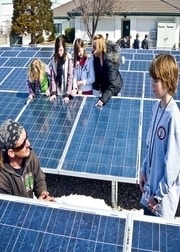
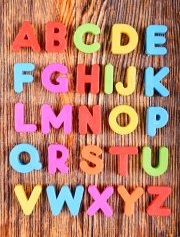


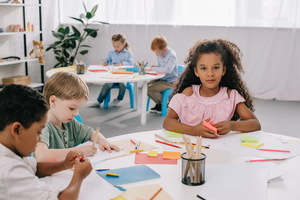

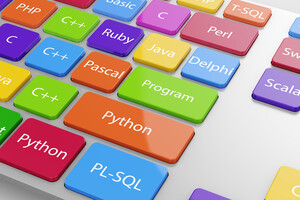

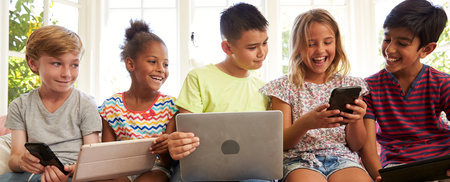 Explore the Safe Search Engine -
Explore the Safe Search Engine -